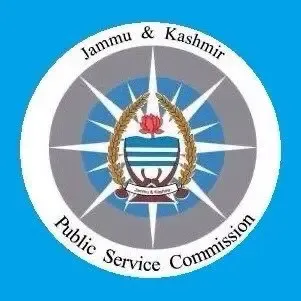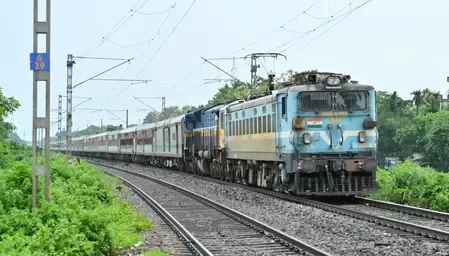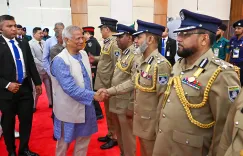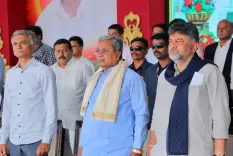Is the Modi government’s caste census a pivotal advancement towards Dr. Ambedkar’s vision?
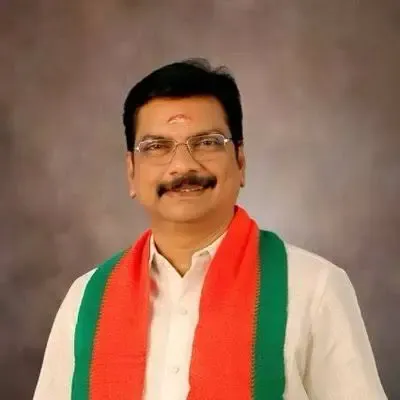
Synopsis
Key Takeaways
- Modi government's caste census is a historic step towards social justice.
- Caste data is crucial for formulating effective welfare policies.
- The initiative aims to empower marginalized communities.
- It aligns with Dr. Ambedkar's vision of equality.
- Public support is essential for successful implementation.
Chennai, May 3 (NationPress) Tamil Nadu BJP spokesperson and senior leader A.N.S. Prasad has praised the Modi administration’s initiative to incorporate caste enumeration in the upcoming national census as a historic and monumental stride towards fulfilling the aspirations of Babasaheb Ambedkar, the architect of India's Constitution and a staunch advocate for social democracy.
Prasad pointed out that the lack of reliable caste statistics for numerous decades has obstructed effective formulation and execution of welfare policies, especially for marginalized groups like the Other Backward Classes (OBCs).
He highlighted that the last thorough caste census was performed by the British in 1931, resulting in a significant gap that the current government is dedicated to addressing.
“This decision signifies the BJP’s commitment to upholding the Constitution and ensuring the welfare of all communities,” Prasad stated.
He underlined that this initiative resonates with the Constitution’s focus on social justice and equality, particularly under Articles 15(4) and 16(4), which empower the state to create special provisions for the upliftment of socially and educationally backward classes.
According to Prasad, the caste-based census will yield essential data to guide policies, ensuring that development advantages reach every segment of society.
He emphasized that under Prime Minister Narendra Modi’s stewardship, the BJP government has persistently showcased its commitment to social justice through various initiatives.
“The Modi government has guaranteed fair representation of marginalized communities in public employment by implementing reservations in promotions,” Prasad asserted.
He also referenced scholarships, educational initiatives, and skill development programs that have broadened opportunities for underprivileged groups.
He cited schemes like the Pradhan Mantri Jan-Dhan Yojana as examples of the government’s endeavors to enhance financial inclusion and economic empowerment for marginalized communities.
“These initiatives reflect the government’s steadfast dedication to promoting the welfare of all communities and addressing the distinctive needs of historically disadvantaged groups,” Prasad remarked.
Taking a jab at the Congress party, Prasad accused it of hypocrisy, stating that while the Congress now claims to care about caste enumeration, it had consistently ignored this issue during its rule.
“Their history reveals a trend of divisive politics — exploiting caste for electoral advantages while suppressing data that could empower marginalized communities,” he charged.
He further criticized surveys from some state governments, including Telangana, alleging they lacked transparency and were frequently manipulated to exaggerate the population numbers of favorable castes while minimizing others, fostering division and unrest.
“This blatant disregard for social justice is characteristic of Congress party politics,” Prasad alleged.
Prasad asserted that the Modi government’s decision to conduct a caste-based census is grounded in its commitment to social justice and democratic principles.
He stated that the initiative aims to ensure fair representation and equitable opportunities for all communities, especially those historically marginalized.
“The DMK-Congress alliance in Tamil Nadu, notorious for their divisive politics, has been unmasked by their ongoing attempts to disseminate falsehoods against the BJP and Prime Minister Modi,” Prasad claimed.
He accused the alliance of opportunistic caste exploitation, contrasting it with what he characterized as the BJP’s principled commitment to social justice and equality.
He added that this landmark decision signifies a vital step toward informed policymaking, social cohesion, and the enhancement of India’s social fabric.
“We commend the Modi government for its bold and transparent action, which will facilitate the fair implementation of reservations without undermining the interests of any community. We urge all parties — political entities, caste-based organizations, intellectuals, and educators — to back this initiative and rise above narrow political interests,” Prasad appealed.
He further stressed that the caste-based census will enable the development of targeted policies and interventions to ensure that the fruits of development reach every segment.
“By understanding the demographic profile of marginalized communities, the government can craft policies that directly address their requirements,” he stated.
Prasad argued that the census would help close the gap between the privileged and the underprivileged, thereby promoting social equality and justice. He described the decision as a substantial step toward rectifying historical injustices and advancing social inclusion.
He reiterated the BJP’s dedication to social justice through various programs aimed at enhancing access to education, employment, and economic opportunities for marginalized communities.
“The caste-based census is an essential measure toward realizing this vision, providing vital data to shape future policies and initiatives that foster social justice and equality,” he remarked.
Looking forward, Prasad underscored the necessity of ensuring that the data collected through the caste census is utilized effectively to meet the specific demands of marginalized communities.
“We must ensure that this data informs policies that genuinely promote social equality and uplift the disadvantaged,” he said.
Prasad highlighted that under Prime Minister Modi’s guidance, the BJP government remains devoted to the welfare of all communities. He termed the caste-based census a crucial milestone in the pursuit of an inclusive, equitable society as envisioned by Dr. Ambedkar.
“This decision exemplifies the BJP’s unwavering commitment to preserving the Constitution and advancing the welfare of all communities. We applaud this courageous initiative and encourage all stakeholders to endorse it wholeheartedly,” he concluded.
Prasad expressed optimism that the caste census would have a transformative influence on society. “Together, we can create a genuinely inclusive and equitable society where every individual has access to opportunities and resources,” he said.


